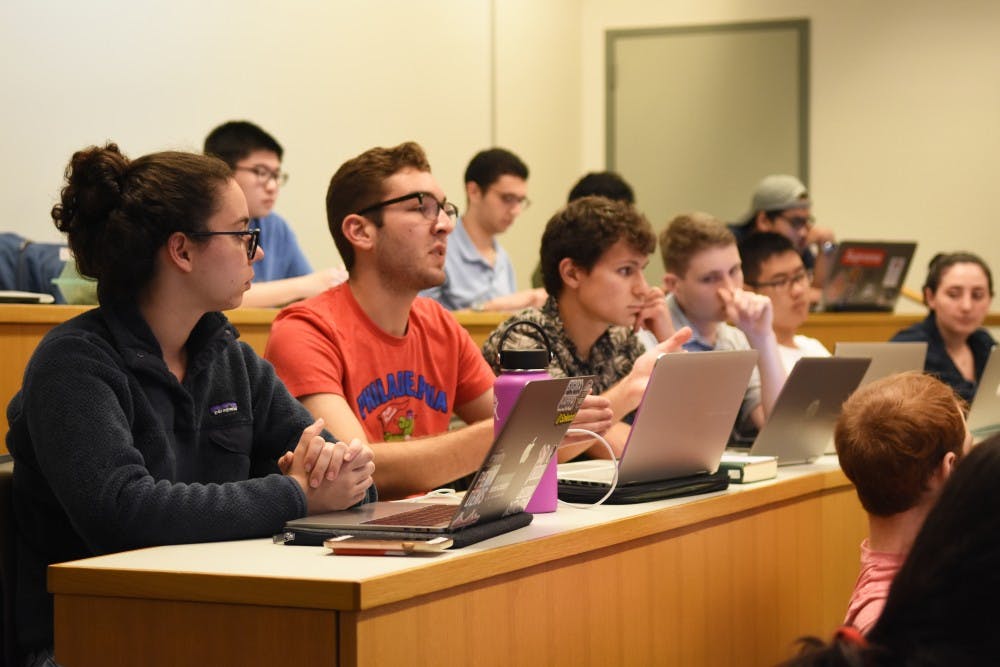For College and Wharton junior Tyler Shevin, coming to Penn meant he would have an opportunity to pursue both business and political science. But when he arrived on campus, he was surprised to find no structure in place to help him navigate the process of pursuing dual degrees.
There are currently no advisors or University-facilitated initiatives that are catered specifically toward uncoordinated dual degree students. Now, the Student Committee on Undergraduate Education is trying to change that.
Long-term, SCUE would like to see advisors designated for students pursuing uncoordinated dual degrees, similar to the advising resources available to students in coordinated dual degree programs such as Vagelos or Huntsman. In the meantime, SCUE is focusing on peer advising. The initiative would facilitate a mentorship system, connecting students who have already been through the uncoordinated process with those currently going through it.
To do this, SCUE spearheaded an effort to update the contact information in the Major Advising Program, an online directory that allows students to connect with upperclassmen in their interested major.
Shevin said the lack of advisors specifically for uncoordinated dual degree students can complicate even simple questions about course requirements.
“They don’t have anyone to go to navigate the requirements of, let’s say, the College and Wharton,” Shevin said.
This lack of advising can mean spending an extra semester fulfilling requirements.
SCUE External Chair and College senior Justin Bean explained the reasons why peer advising is viable. “Getting student perspective on these things is very useful for uncoordinated dual degrees, it’s something we’re also looking for in other departments.”
SCUE is a branch of student government at Penn that makes suggestions on improving academic policies to the administration.
The organization is also pursuing projects that aim to transform the way Penn students take advantage of the interdisciplinary education offered.
College junior Megan Phansalkar, project chair for Structuring Interdisciplinary Studies, is leading SCUE’s three-part plan to facilitate true interdisciplinary education.
“Our goal is to talk about uncoordinated dual degrees but also to increase exposure to the other programs since they aren’t taken advantage of,” Phansalkar said.
These programs include NSO preceptorials that feature talks about interdisciplinary education, Academic Day with the various school deans, and MAP.
According to a SCUE survey, most students surveyed felt they learned about campus resources too late to get the interdisciplinary education they wanted, and even after, most often feel uncoordinated dual degrees are the only way to do so.
For many applicants, the process for applying for transfer and for uncoordinated dual degrees has not been transparent, and students often don’t know where they stand. The breakdown for uncoordinated dual degrees are skewed towards one end, with most students applying into Wharton. According to a university-conducted study, a majority of College and Engineering students pursuing dual degrees do so with Wharton.
Moving forward, SCUE is hoping that their initiative will have more long-term implications and change policies in the University itself. “[We’re working towards] just really opening up the resources that we have at Penn so that they’re more forward facing and they’re doing what they should do," Bean said.









